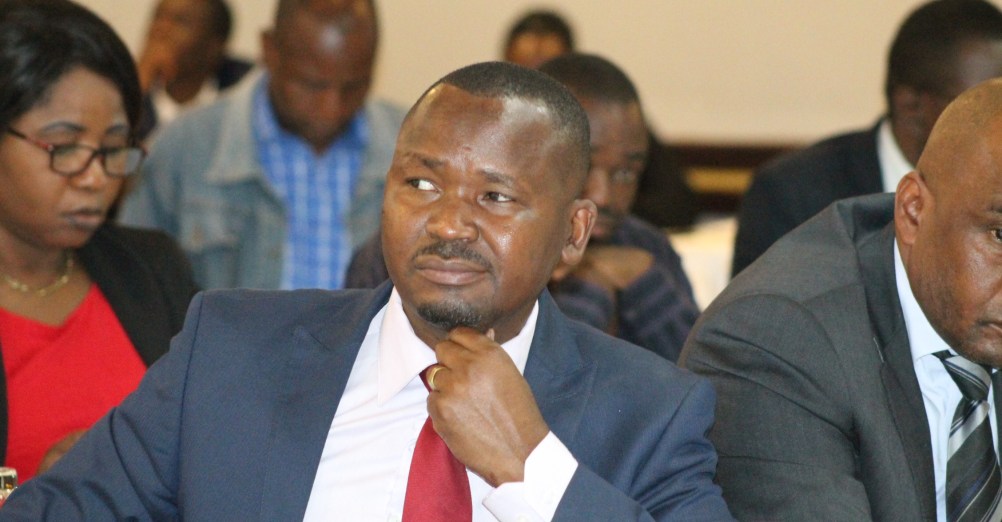ZANU-PF wanted to win Binga North at all costs in the March 26 by-elections looking at all the resources, funding and machinery the ruling party poured into the constituency, opposition’s MP designate, Prince Dubeko Sibanda, who won the seat, has said.
Sibanda of the Citizens Coalition for Change (CCC) won by 10 130 votes, defeating Kudakwashe Mavula Munsaka of ZANU-PF who came second with 7 971 votes, despite the resources his party invested in the constituency.
Speaking on Twitter space on By-Election Results and Matabeleland Voting patterns Thursday evening, Sibanda noted the ZANU-PF leadership descended on the area in their numbers as part of efforts to coerce people but he managed to win the seat again, relying on the support of the locals.
Sibanda was recalled by the MDC-T in October 2020, which accused him of joining the rival MDC Alliance.
“It is important to give background to this by-election. It was clear that ZANU-PF had targeted Binga North to be one of the biggest prizes. They put in everything, invested all their energy into Binga North, they wanted it at all costs,” he said.
The MP designate noted how ZANU-PF descended on the constituency, where its central committee members and political members “literally camped in Binga North.”
“For the first time, all bigwigs of ZANU-PF literally came to camp in Binga North. We saw (senior ZANU-PF members) Obert Mpofu, Kembo Mohadi, (Vice President Constantino) Chiwenga and Richard Moyo – the ZANU-PF provincial chairman,” Sibanda said.
“We also saw the District Development Coordinator (DDC), a newly appointed ZANU-PF member who is currently the DA in Binga going all over, threatening the traditional leaders that they have to act in a certain way or else they would be removed from their positions. We saw (President Emmerson) Mnangagwa.”
Sibanda claimed the ruling party invested a lot of money in Binga North, in order to try and upset the CCC victory.
“ZANU-PF used a lot of money in Matabeleland North and a lot of resources in Binga North. They made sure there were a lot of people and development projects. We saw a lot of tippers, graders, and caterpillars brought into Binga North for purposes of trying to (coerce) people. They also brought bicycles. I’m sure the bicycles were seen by everyone but our ground was intact, solid and was never shaken,” he said.
“Those are things we witnessed in Binga North,” he noted but added these tactics failed as he would be sworn in as Binga North MP.
The MP designate attributed his victory to the importance of strengthened structures and localised leadership who campaigned in all polling stations.
“It is important for people to provide leadership wherever they are in order for people to win and this is what we did. We literally camped in Binga North and made sure we activated all of our structures,” Sibanda said.
“We had 69 polling stations before the elections and towards the elections, we were told one of our polling stations was going to be removed due to low numbers of voters so 68 were left. In those 68 polling stations, we had campaign teams of 20 members that were ready to go down to the ground.”
Sibanda said those teams were up against machinery from ZANU-PF that brought in a “lot” of maize and money.
“There was a lot of vote-buying. I’m sure everyone can see that if they look at numbers of assisted voters in Binga North they went up this time around,” he alleged.
Sibanda also claimed the ‘high’ number of assisted voters during the by-election was part of ZANU-PF tactics to make sure people voted for them.
“There were people who were given USD$20 and told ‘go into the polling station with someone to assist you.’ That’s why we have numbers of assisted voters going up. But they could not defeat the localised kind of campaign teams and campaign leadership that we had,” he said, adding the presence of ZANU-PF in Binga North exposed them as “visitors.”
“Richard Moyo, Obert Mpofu, Chiwenga, Mohadi, Mnangagwa are all visitors but we were localised, energised, there on the ground and had the necessary leadership that did the work. It didn’t really necessarily need me to be in every one of the 15 wards.”
“I would go and show my face in each and every ward but having people on the ground doing our work for us that was important. This is what made us win and be where we are today.”

